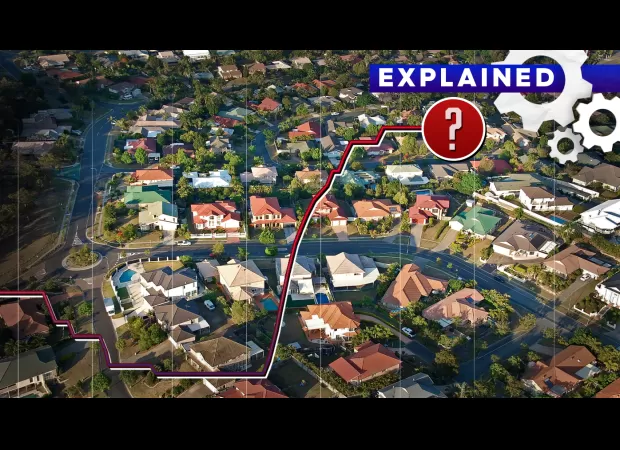When will rates drop?
Australia wants to know: what will happen to the 3.2 million mortgage holders?

Many people in Australia, especially the 3.2 million mortgage holders who collectively owe $2.2 trillion, are eagerly awaiting an answer to the question on everyone's mind: what will happen to interest rates? However, predicting the cash rate is a challenging task, and the Reserve Bank has become more cautious about publicly indicating which direction it may move in. This is due to the previous governor Philip Lowe's infamous prediction in 2021 that the rate would likely remain unchanged until at least 2024.
Despite the difficulty in making accurate predictions, there are some facts and figures that can give us an idea of where interest rates may be headed. However, there is no guarantee that these predictions will be correct. So, what can we expect in terms of interest rates in the future?
The short answer is yes, interest rates will eventually go down from their current rate of 4.25%. The big question is when. It all depends on when inflation starts to reach the target band of 2-3%. While inflation has decreased significantly from its peak of 7.8% in December 2022, recent data has shown it plateauing at around 3.5-4%. The major banks are predicting the first rate cut to occur between November of this year and May of next year. Meanwhile, the federal treasury in the May budget projected a reduction in rates "from around the middle of 2025", and the wider financial market believes that rates will not reach 4.1% until next October.
But what about the opposite scenario – how high could interest rates go? Again, there is no definite answer, but the general consensus is that rates are unlikely to rise any further. The big four banks and most economists believe that 4.35% will be the highest they go, and the next move from the Reserve Bank will be a rate cut. This is also in line with the central bank's most recent statement on monetary policy in May, which stated that the forecasts assume the cash rate will remain at its current level until mid-2025 before gradually declining.
However, all of this could change based on the crucial June quarter inflation figures that will be released by the Australian Bureau of Statistics on Wednesday. Monthly data has shown a recent increase in the Consumer Price Index (CPI), and if the quarterly stats confirm this trend, it could result in the 14th rate hike since May 2022.
Looking even further into the future, many people wonder what interest rates will be in five years. This is a commonly asked question, but unfortunately, no one can accurately predict this, as we don't even know what rates will be in five months, let alone five years. Most long-term forecasts only look at the next couple of years, and even the Reserve Bank's forecast period in their latest statement on monetary policy only stretches until mid-2026, when they assume rates will have dropped to 3.8%.
So, what factors influence interest rates? The simple answer is inflation. The Reserve Bank's main goal is to keep inflation between 2-3%, and they use interest rates as a tool to achieve this. The general rule is to raise rates when inflation is high to decrease demand and theoretically lower price growth, and lower rates when inflation is low to give households more spending power and increase inflation. However, there are many other economic factors that also play a role in the Reserve Bank's decision, such as the unemployment rate, consumer spending, international financial conditions, and household debt, among others. Another crucial measure to keep an eye on is the "trimmed mean", which is the Reserve Bank's preferred measure of underlying inflation, as it excludes the most volatile price changes. If the trimmed mean starts to decrease towards the target range, it could be a sign of an upcoming rate cut. On the other hand, if it remains high or increases, it could indicate that rates will remain steady or even rise.
It's important to keep in mind that the information provided on this website is general in nature and does not constitute personal financial advice. It's essential to consider your personal objectives, financial situation, and needs before acting on any information.
8 Views


